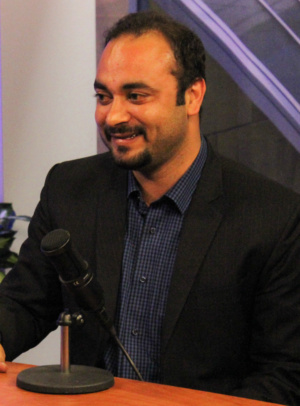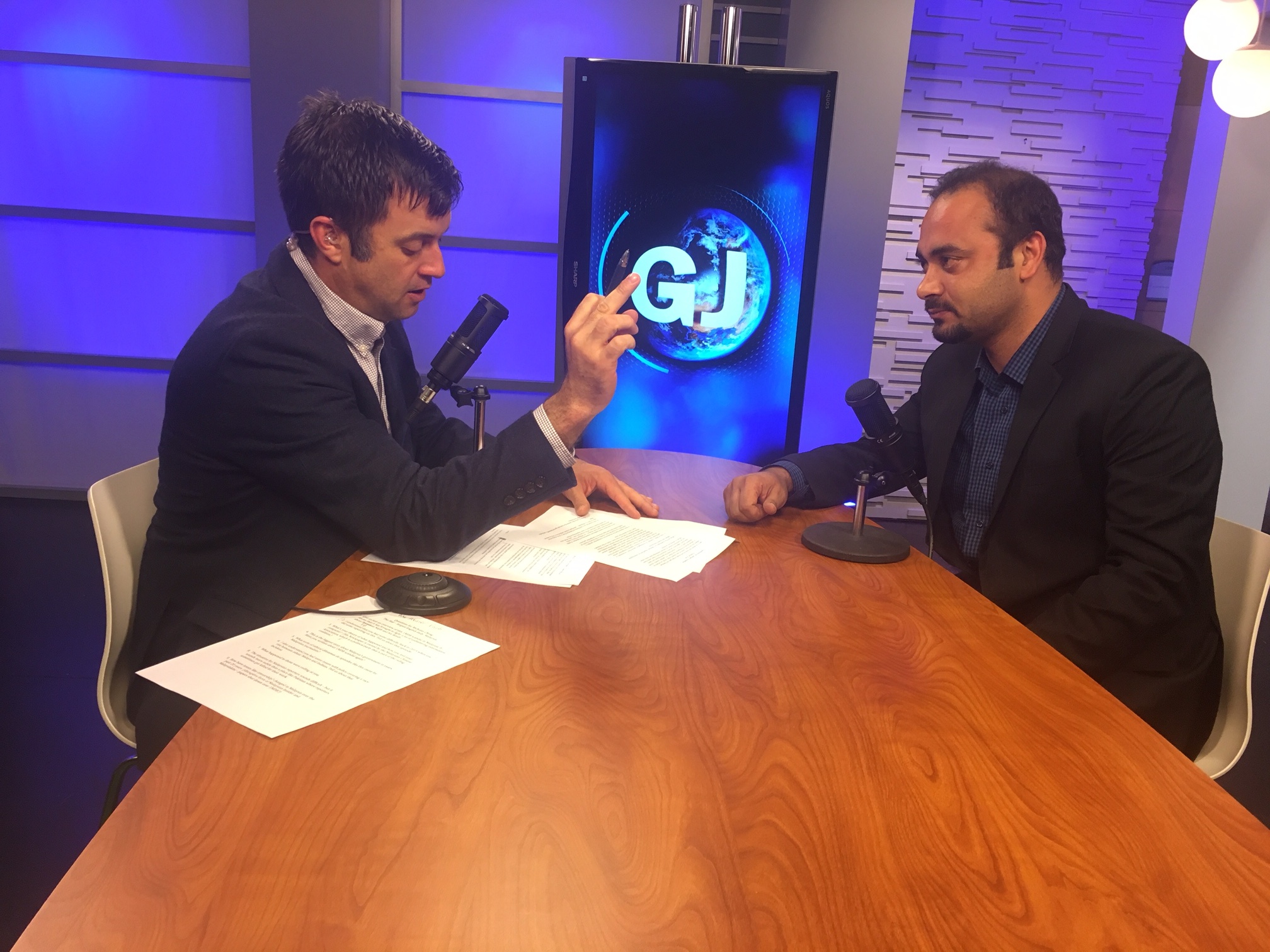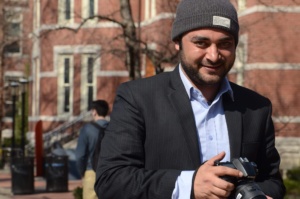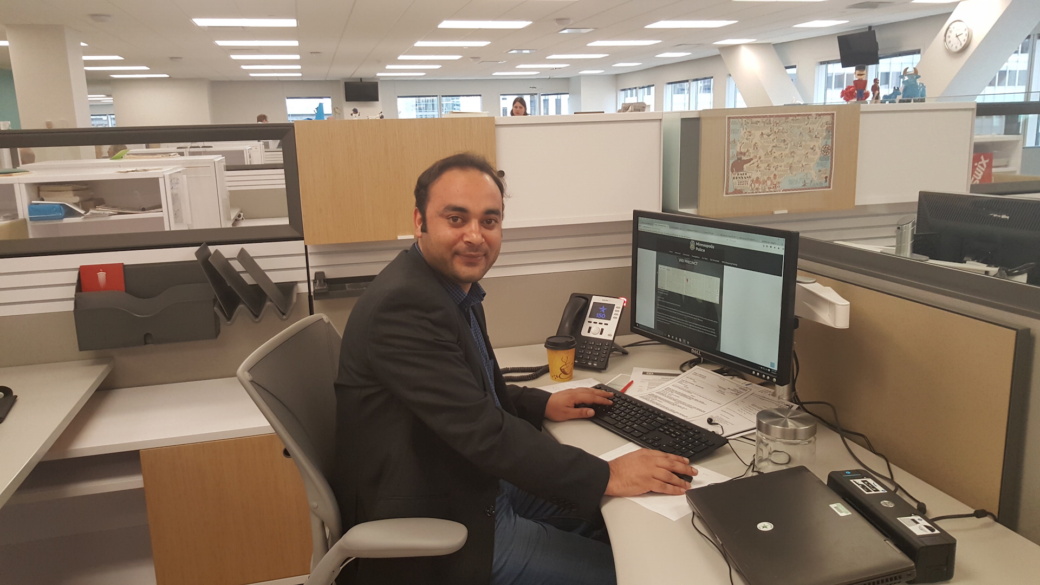SALMAN YOUSAFZAI
Peshawar, Pakistan| Reporter, The Frontier Post
Daniel Pearl Fellow | Host: Minneapolis Star Tribune
By Binita Dahal |
“From the very beginning my passion was always to tell stories about the place where I belong,” The Frontier Post reporter Salman Yousafzai said.
Yousafzai’s home is Peshawar, the capital of Pakistan’s Khyber Pakhtunkhwa province, traditionally known as “the Land of Hospitality” and the “City of Flowers.”
“After the rise of Mujahideen, the image of Khyber Pakhtunkhwa changed and now it becomes, like, ‘the Land of Terror,’” Yousafzai, 29, said. “The place has gone through a lot of conflict over these years. And yet, the situation is still the same. Suicide bomb attacks take place time and again and it seems we are now used to the sounds.”
As a child, he listened to a lot of stories about the Mujahideen resistance against the Russian army in neighboring Afghanistan, and wars with India over the disputed Kashmir territory, just to the west of “KP” province.
On Sept. 11, 2001, when he was 14, members of a terrorist group based in Afghanistan and supported by the Taliban, al Qaida, attacked the United States. Pakistan aligned with the U.S. to fight terrorism, and the situation in his province changed drastically.
“That is when I decided that I will tell (stories about) the sufferings of people of my region who were helpless and compelled to bear the conflict,” Yousafzai said. He also decided to write under his tribal name rather than his given name, Muhammad Suleman.
He earned a bachelor’s degree in arts and a master’s in journalism from the University of Peshawar and in 2011 he got an internship with The Frontier Post, a national newspaper. His employer was impressed by his first-hand reporting and decided to hire him as a staff reporter covering the crime beat.

Salman was a guest on the Global Journalist, broadcast on public media and produced at the Missouri School of Journalism
Pakistan is one of the world’s most dangerous places to be a journalist. But Yousafzai became one of the few journalists who has developed sources with both militant groups and government security forces as he covers crime and terrorism in KP and the neighboring Federally Administered Tribal Areas of Pakistan (FATA).
“Here, in Peshawar, due to many social, cultural, political pressures and due to threats to life, very few journalists dare to write the truth,” he wrote in his application to become a Daniel Pearl Fellow.
In FATA, where tribesmen run a parallel state, Yousafzai did investigative reporting about people compelled to obey their distinct tribal laws or face harsh punishment. He also wrote stories about people who were displaced due to the military operation in that area.
He quenched his thirst to break news with exclusive stories like one about meth addiction in KP and FATA, and another about drug smugglers who are financing terrorism in Pakistan.
He was named vice president of the Crime and Terrorism Journalist Forum, and his reporting from the conflict zones earned him awards from the International Center for Journalists and the Thomson Foundation.
“Being one of the most difficult beats, crime reporting requires full dedication and hard work and Salman Yousafzai has proven himself as the right choice for the post,” his news editor, Muhammad Ali Sheikh, wrote in a recommendation letter.
 His reports on war, terrorism and health have been published by other news organizations, including Dawn, and News Lens, and international news site.
His reports on war, terrorism and health have been published by other news organizations, including Dawn, and News Lens, and international news site.
“Due to his performance, The Frontier Post is planning to put him in the leadership role in the coming year,” his managing editor, Bilal Afridi wrote in his reference letter.
As part of his six-month fellowship, Yousafzai is working as a crime reporter for the Minneapolis Star Tribune.
The terrifying tales of the war he heard during his childhood still resonates. The scenes of violent conflict are different, but continue.
But Yousafzai wants to also portray the broader nature of his home, the oldest city in Pakistan (dating from 539 B.C.) and one of the oldest in South Asia.
“The place where I belong is very rich in its culture and values,” he said. “We have strong history, but the world knows us only through the war stories. We have very strong family bondings. I hope we will come out from this scenario soon and will be able to tell our stories about the real values of Pashtunwali” (the unwritten code of conduct in their society).



